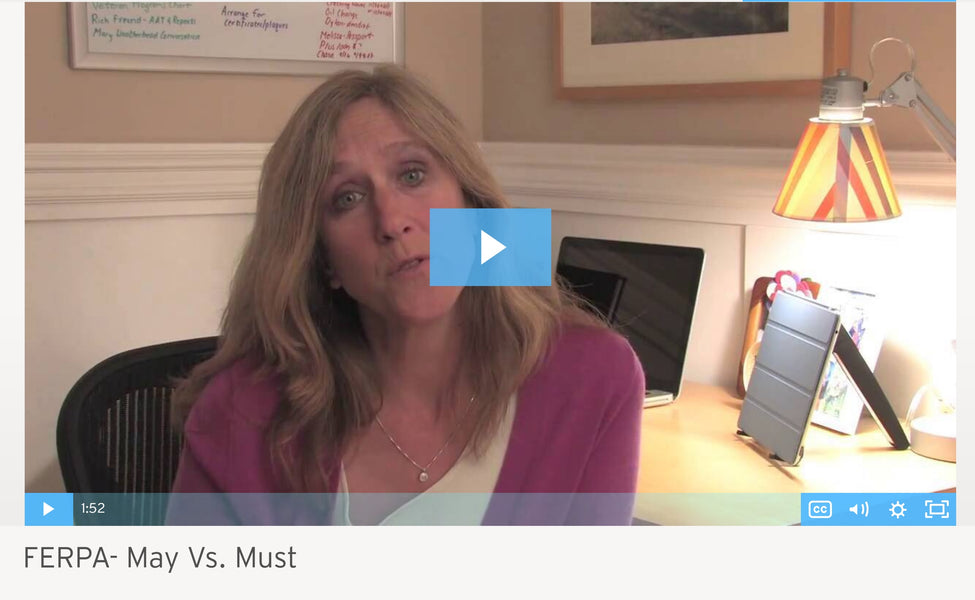In order to navigate the expectations of higher education, some students may require a service dog, emotional support animal or therapy animal to accompany them to campus. College students with disabilities are protected by state, federal, and local laws which prohibit discrimination and mandate access to appropriate services and resources. This guide will walk you through the background, laws, and guidelines regarding service animals.
EduShare - Higher Ed Blog & News
FERPA: May vs. Must
Let's hear from Helen Garret, Registrar at the University of Washington, as she discusses the difference between May vs. Must with regards to FERPA.
How To Create Accessible PowerPoints
Did you ever wonder how a person with a visual disability can see your PowerPoint? Watch this video, A 7-Minute Training: Creating Accessible PowerPoints, to see how to format your power points and make your presentation so that it’s accessible by everybody.
Time Management & Procrastination: Read Now. Not Later.
According to the American Psychological Association, between 80 and 95 percent of college students procrastinate on their schoolwork. So let’s face it, most students need help with time management and a 3-tiered time management system would be beneficial for most (if not all) students, but there is a lesson here for all of us.
Your Guide To Undocumented Students
View The Entire Guide Which Includes:
- Infographic Of Major Events
- What You Need To Know
- Additional Resources
Bloom’s Taxonomy & Today’s Tech-Savvy Students
Bloom’s has grown in awareness, adoption, and application throughout the various generations - Generation X, Millennials, Generation Y, and now Gen Z students. How does Bloom's apply to today's tech-savvy students?








